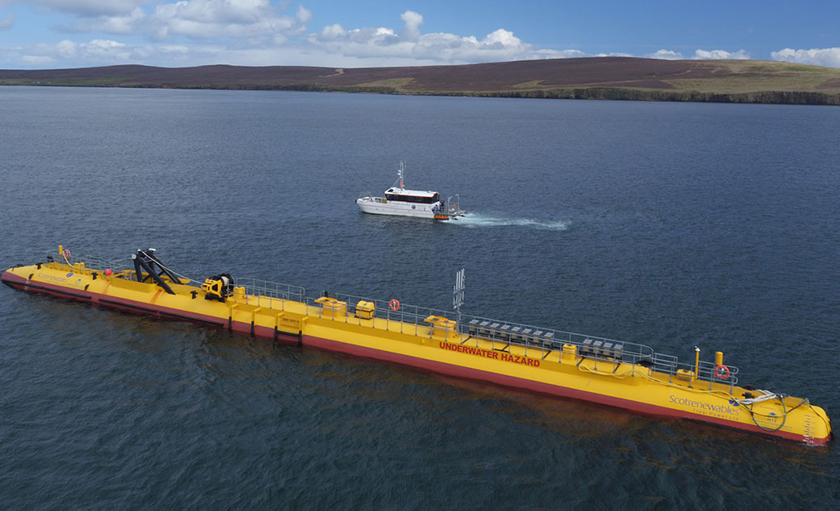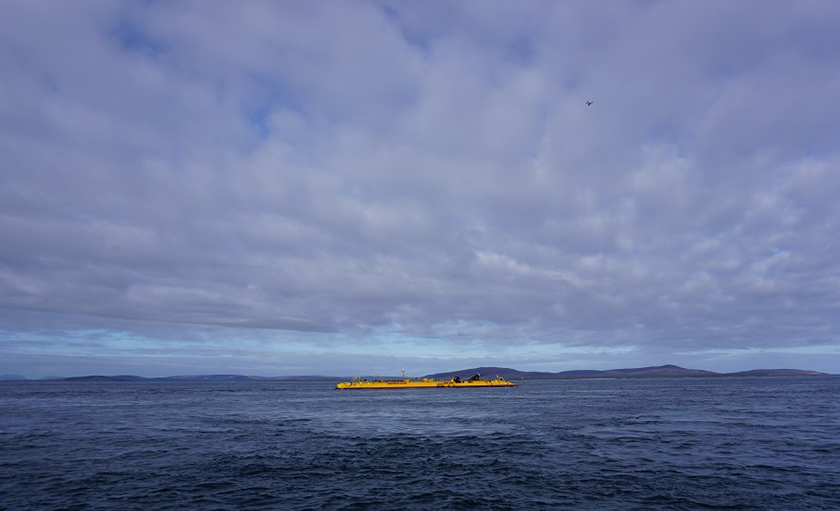Orbital Marine Power teams up with Black & Veatch for tidal turbine optimisation

07.07.2020
Orbital Marine Power Ltd (Orbital), the world’s leading developer of floating tidal stream turbines, has appointed Black & Veatch as Lead Engineering Partner to support technology optimisation and cost reduction engineering under the company’s €5m R&D programme.
Supported by the INTERREG France (Channel) England TIGER project, the four year programme will build on Orbital’s unique floating tidal turbine technology, the O2, in a focused initiative to identify and de-risk innovations capable of accelerating cost reductions for tidal stream energy.
Commenting on the programme Andrew Scott, CEO, Orbital Marine Power said: “A central strand to the development of our O2 technology was a vision for the future and to ensure we created a product which is well futureproofed for ongoing innovation. So it is great to have started this work in more detail and that the initial assessments from Black and Veatch back up our own projections that the correct configuration of technology can make tidal stream energy competitive with established sectors.”

At the heart of the initiative Black & Veatch have created a digital twin of Orbital’s current turbine design that allows the teams to model turbine improvements and identify which advances deliver the lowest levelised cost of energy across the entire turbine lifecycle.
Robbie Gibson, Black & Veatch Renewable Energy Services Director for Europe said: “We’re delighted that Orbital has selected us to support their development programme as we see the technology as having huge potential to deliver cost competitive low carbon energy and our team has a huge amount of experience it can bring to assist this journey.”
Beyond Black & Veatch, the R&D programme will engage with TIGER project partners and wider industry experts to advance leading optimisations for the O2 platform, with dramatic cost reductions targeted through incorporating learning from similar applications across mature energy sectors including wind, where increases in blade lengths and component reliability have delivered plummeting generating costs.
The innovations will be rolled out on a continuous basis on future O2 units as Orbital transitions to becoming a global supplier of low-cost tidal energy systems.
